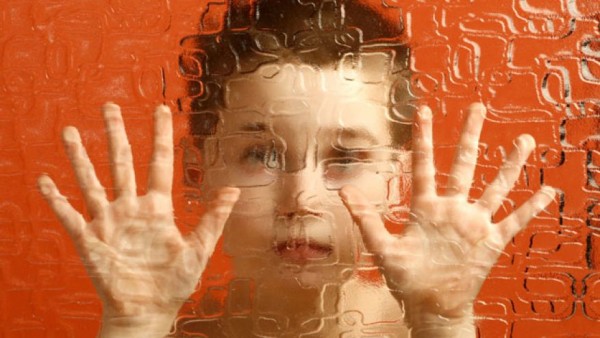I can’t be more excited! Our first radio show, entitled Channeling Erik’s Hour of Enlightenment, starts tomorrow (Thursday, February 11th) at 5:00 PM PT/6:00 PM MT/7:00 PM CT/8:00 PM ET. Join Kim, Erik and me for an hour of fun and enlightenment. During the show, Erik will start out by teaching us a little something, then the lines/chat room will open up for your questions. I’ll try to put a “Play Now” button on the righthand side of the homepage, but you can also click HERE to listen and participate! I might be a little rusty and maybe even a little nervous at first, because I’ve never had my own radio show. Plus, it doesn’t help that I don’t even know how to get on the show or screen callers and chatters yet, but hopefully today’s production meeting will answer my questions. In any case, since we’re airing weekly, I’m sure I’m find my footing eventually!
I can’t wait to visit my sister and brother-in-law this weekend. When I’m feeling down about Erik, chilling with them really seems to recharge me. They’re both so authentic, and I can talk about anything with them, something that’s pretty rare even within family. Erik was really close to Laura and Jim, too. He confided in them often, sometimes bummed smokes, but was always the recipient of their love. I hope you all have family like I do.
Enjoy this two-part series on autism.
Me: Hello.
Erik: Hi.
Jamie: Hello.
Me: I’m going to let you choose between two topics, Erik. One is about autism. I get a lot of questions about it. The other is about all these shootings like school shootings, etc. You choose.
Jamie: He wants to talk about both of them.
Me: Oh, we will, eventually.
Erik: Okay, so let’s go ahead and hash out autism again.
We’ve talked about this before, but I want more information.
Me: Okay.
Erik: Then the next time we can really blow up on gun use.
Me: It’s a hot topic now. Autism. It seems like it’s more prevalent now.
Erik: Not only more prevalent, but they know more about the different areas of Autism. You know they took away the use of Asperger’s?
Me: Yeah, it’s the autistic spectrum. It’s all on a big spectrum. That’s more like a highly functioning autistic person.
Erik: Yes, and now when they’re looking at it, they can identify—
Jamie: No, no, no. Say that again. He’s showing me that scientists can now identify what causes autism in a healthy child. Erik is clearly identifying that there is a natural state of autism where one is born with it, and there’s a created autism in a healthy child.
Me: Hm. Are there any differences between the two besides the fact that one is acquired and one is congenital?
Erik: No.
Me: What creates the acquired one?
(Long pause)
Jamie: God, I wish you could see inside my head.
Me: It’s probably a horror movie.
Jamie chuckles.
Jamie: First, he’s looking at the development of the immune system in a child. He’s looking at the human growth within the first two years, and in brain growth, cellular development and how it sets the pattern for the rest of the child’s life. So in my head, there are a bunch of circles with phalanges on them looking to root somewhere—like a seed with a little leg. Then he shows me these other cells that have an open mouth like Pac Man and these two types of cells are meeting.
Erik: In some people, when they’re building their immune system, they’ll latch onto inappropriate receptors, different plugs.
Me: What’s latching on to inappropriate receptors? Are these proteins?
Erik: Well, it should be proteins, but with immunizations, there are some that replicate certain proteins because they’re blockers and enhancers to kind of build the immune system, but with some people—and it’s not everyone—the body can’t identify certain differences. There’s some identification process that fails and sets the body up to where it can’t build what it needs to to reach optimum whatever. Things fail to continue and set the child back.
Me: In other words, certain immunizations in some kids create an immunologic response that’s unhealthy? Is it an autoimmune process like immunity against oneself?
Erik: Yes.
Me: So it’s almost like an autoimmune disease?
Erik: But what it creates is an inability for the child to develop. It offsets the—
(Long pause)
Jamie: I have a lot of pictures in my head and not a lot of words coming out of Erik’s mouth!
Erik: It offsets the ability for the brain to process and grow on track.
Me: Okay. What part of the autistic child’s body does it attack? It must be in the brain, I guess, huh?
(Long pause)
Jamie (laughing): You son of a bitch, come on! Just tell me the words! A lot of it looks like the immune system, and a lot of it looks like nerves that are building growth patterns. It’s almost like it stops the nerves from sending signals back and forth, building a strong connection.
Me: In the brain?
Jamie: Yeah, it overwrites what’s a priority and what’s not. It almost reverses.
Jamie shakes her head in frustration and confusion. She’s not sure if she got it right.
Me: Okay, so the immune system, but it also attacks certain nerves in the brain?
Erik: Yes.
Jamie: He wants to explain it in a different way, but I don’t think he knows how to get it across to me, but in a simpler way.
Jamie listens to Erik.
Jamie (To Erik): I’ll say it. I don’t care.
She clears her throat.
Jamie: Like if two kids are sitting in front of each other and this is the nervous system, and one is the brain and the other is the response. They throw a ball back and forth a thousand times and it has a thousand times that one connection, making that connection a priority. But there is misidentification of foreign substances that almost makes it go, “Ew, we shouldn’t be throwing that ball back and forth. That’s not important anymore.” So the brain holds on to the ball and doesn’t throw it back and forth so that connection isn’t built. That “muscle” isn’t strong. It doesn’t deem it as important anymore so it stops. But with supplements, with better diet, with omegas, with cultured food—
Me: Yeah, I want to talk about treatments in a little bit, but first I want to ask: What part of the brain do you see this occurring in?
(Long pause)
Me: Or is it globally all throughout the brain?
Jamie: He’s definitely highlighting more than one spot.
Me: Okay.
Jamie: It doesn’t involve, is this a word, “cognitive thinking?”
Me: Yeah.
Jamie: It’s not that area.
Me: Okay.
Jamie: So the inside thinking part, totally fine.
Me: Okay.
Erik: But it’s taking those thoughts and expressing it and engaging in the environment.
Me: So Broca’s Area? Is it where expression occurs?
Erik: it doesn’t have to do with memory. Memory is sharp as a tack. It’s not there. It involves lack of expression and, in some cases, eye-hand coordination where things are seen but the body can’t identify how to interact with those things. But it’s being seen very clearly with great depth, measurement, understanding, color, shape—none of that is compromised.
Me: Okay. Is there any particular vaccine that’s causing this?
Erik: There was, but a lot of it has been removed. A lot of it has been changed.
Me: So something in the vaccine has been taken out?
Erik: Preservatives.
Me: All right. Now are the vaccines safe?
Erik: Most of them.
Jamie: He won’t give it a one hundred percent stamp of approval.
She laughs.
Jamie: He’s going on one of his great Erik Rants.
Erik: I can’t fucking understand why doctors won’t let children build their own immune system until the age of two like other fucking countries.
Me: Yeah, and we give them so many and at such a high volume at once!
Erik: It really needs to be fucking based on weight.
Me: Yeah.
Erik: The person, the age.
Me: I agree.
Erik: We definitely need to focus on how food builds the immune system and not these fucking chemicals.
Me: That’s true. Now, what about the ones who come in here naturally autistic? Why do they do that?
Erik: Check. Sign that off. Success.
Not really. I should have asked which vaccines are still harmful.
Erik: There are a great many reasons. I gotta tell you, inside the autistic child—not the highly functioning one. I wanna go extreme—is a beautiful world inside of their head.
It’s their way to come to Earth to observe and be a part of without having the experience of being held responsible or play a role in society. It’s a way of being on the outskirts and being a teacher and director for those who are well-behaved by society’s standards to say, “You know what? They’re getting away with it. Why can’t I?” So in a way, it’s like having a really great rule breaker, a really great teacher that shows us that it’s okay to be free [from society.] But we don’t see them that way. We get afraid when we see someone who is disabled or not functioning in a way that you are. There’s a lack of connection.
Me: Right. Yeah.
Erik: That’s going to stop because what’s happening now is these beautiful universes stuck in these kids’ heads, they’re coming out with technology. They’re learning how to tap into the brain so that that eye-hand coordination thing? It doesn’t matter anymore. That inability to express doesn’t fucking matter because we plug straight into the brain and the computer is typing it out for them, recording it for them in their head, their brain waves. We can see them have emotional reactions and respond to things. We know that they indeed are engaging in the best way that they can in their environment. Computers will set them free. We’ll acknowledge it, and we’ll start to identify them as people and not some strange, foreign concept stuck in a human body. They’re not aliens.
So that ever-important connection can be established with this technology.
Me: How will this computer system work?
(Long pause)
Jamie: He’s showing it as embedded.
Me: Oh, really? And so how will it present itself to other people that they’re having emotional response, for example?
Erik: With most extreme cases, they’re really not out and about, Mom, so it’s more about being connected with the family and care provider. It’s more for acknowledging their needs, and I think the masses will catch on to start a blog. Or like one care provider might go, “Fuck this shit. This stuff’s amazing,” and they publish it. So the masses will start to get a slice of what it’s like to be inside of one’s head and not able to engage with cultural norms, society’s expectations and what life looks like through the eyes of someone with autism. It will change the way we live—the way we choose to live—our lives. They’re amazing fucking teachers. Amazing people. Amazing. I don’t get it. People are rewarded for being intelligent and motivators or healers, and then we look at someone who can’t talk and we say, “Oh, we can’t learn anything from you.”
Me: Well human beings, we’re all about connections. So when we have somebody who has trouble connecting in the way we’re accustomed to, it makes it difficult for us.
Erik: I agree, but fuck that shit. We’re not the only ones who live for connections.
Here he goes, down a rabbit hole.
Erik: Now that we’re opening up and understanding elephants and chimpanzees and dolphins and whales—the complex languages and needs and grief. They desire connections as deeply as we do. We do not stand alone in this. You’re right. I was mentioning how we see other humans, and it’s true. If we don’t feel like they can communicate, we dismiss them
Me: Yeah. Do they want to connect?
Erik: Yes!
***
Enjoy this review for Erik’s awesome book, My Life After Death! Remember, it comes in audiobook now, too!
I ordered my copy of “My life after death” through Amazon kindle. I didn’t have the patience to wait for the delivery the hard copy; normally I love to snuggle to an actual foldable book, haha!
This book is one of those books you can’t put down and want to finish all the way through. Unfortunately, my eyes started getting heavy half way through the book leaving the rest for another day.
Well that day is today (the very next day) and I’m on chapter #25 “working with a spirit translator” and only closed out my kindle because I got an email from this blog site.
When reading the book I can actually hear Erik’s voice, but in the I hear Jaime speak for him, you know?
My final thought is that you won’t be disappointed but make sure to be in a quiet place to get lost in his words because my whole family spent almost every moment asking for miscellaneous stuff so I had to keep stopping after each paragraph–gotta love a husband and three kids (one being newborn). I give this book 5 stars!!!
Thank you!!
–Lisa M. Diaz




